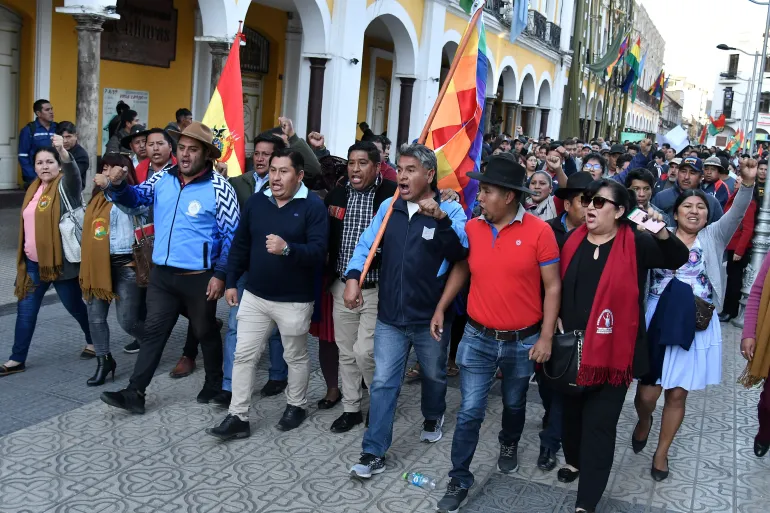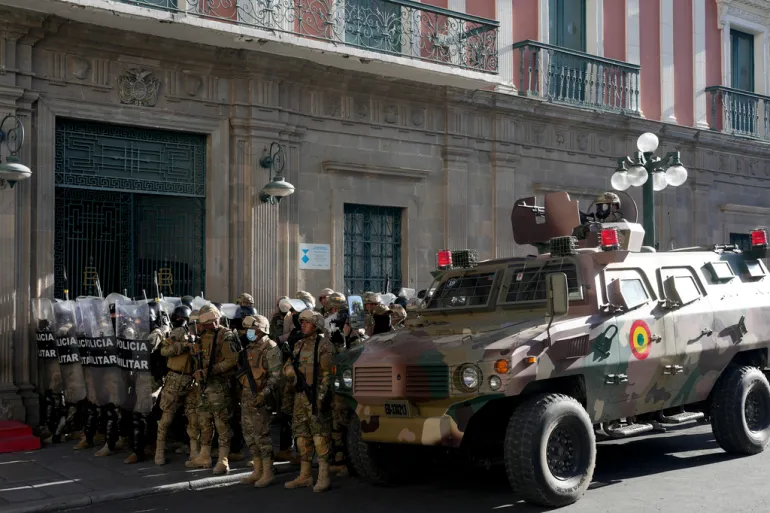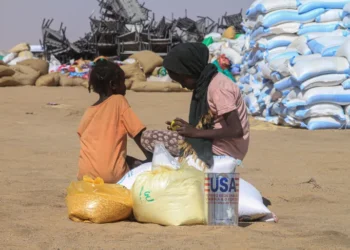President of Bolivia, Luis Arce, has survived a harrowing coup attempt.
Bolivia has had a long history of political unrest since it gained independence in 1825.
This has earned it the unfortunate distinction of being the most coup-prone country in South America, as noted by Kathryn Ledebur of the Andean Information Network.
Since taking office in 2020, President Arce has led an embattled government, fending off pressure from both the left and the right.
Right-wing factions, particularly strong in provinces like Santa Cruz, have fiercely opposed government policies they perceive as threatening their influence, resorting even to deadly strikes.
Meanwhile, from the left, Arce faces criticism from his former mentor, ex-President Evo Morales, who eyes a return to power in the upcoming 2025 presidential elections.
Adding to the political turmoil are severe economic challenges, including fuel shortages and financial crises that have depleted the country’s currency reserves. Against this backdrop of instability, the recent coup attempt led by General Juan Jose Zuniga further underscored Bolivia’s fragile democracy.
Zuniga, backed by heavily armed troops, briefly seized the government palace before his forces were compelled to retreat and he himself was apprehended.
In justifying his actions, Zuniga cited the malaise in the country as a motivation, accusing the government of exacerbating poverty and humiliating the armed forces.
The General added that he would continue to recognise Arce as the commander-in-chief “for now.”
He explained that his aim was to “restore democracy” and “free political prisoners.”
This signals a concerning interventionist mindset within the military.
Fortunately, the swift replacement of General Zuniga with Jose Wilson Sanchez, who promptly ordered the return of all mobilized troops to their barracks, marked a crucial victory for democracy in Bolivia.
“No one wants the images we’re seeing in the streets,” Wilson Sanchez said.
The public prosecutor’s office said it will open a criminal investigation into those behind the failed attempt against the government.
President Arce, in his address following the incident, hailed the withdrawal of the military as a triumph for Bolivian democracy and addressed the country’s citizens in the aftermath, some of whom had taken to the streets in protest of the alleged coup attempt.

“Many thanks to the Bolivian people. Long live democracy,” said Arce.
However, the attempted coup serves as a stark reminder of the persistent threat posed by elements within the military to Bolivia’s democratic institutions.
In an interview, Ledebur stated that Bolivia has enjoyed a very long period of democracy until the 2019 coup.
She noted, “I think it’s very important to remember that Bolivia had an illegal government with the support of the military and a coup in 2019.”
That, she said, has fed scepticism among the public towards the armed forces, something reflected on the streets of La Paz.
However, she added that the incident sends a strong signal about the continued threat that the military may pose.
“It’s a very very clear sign that the army is not firmly entrenched in democracy, nor the rest of the armed forces,” Ledebur added.
Kathryn Ledebur’s observation that the military remains susceptible to undemocratic impulses highlights the need for vigilance and steadfast commitment to democratic principles.
Military Action Condemned
Former Bolivian President Morales denounced the military’s actions, calling for criminal prosecution against Zuniga and anyone who helped him.
“We will not allow the armed forces to violate democracy and intimidate people,” he said.
Even the right-wing leader who replaced Morales, former President Jeanine Anez, rejected the military’s advances.
“Total repudiation of the military mobilisation in the Plaza Murillo, attempting to destroy the constitutional order,” she wrote on the social media platform X, adding that Arce “must leave through the vote in 2025”.
World leaders from countries like Brazil, Mexico and Colombia also expressed alarm and denounced what they considered an attack on democracy.
“We express the strongest condemnation of the attempted coup d’etat in Bolivia,” said Mexican President Andres Manuel Lopez Obrador, a popular left-wing leader.
Honduran President Xiomara Castro, meanwhile, called the mobilisation a “criminal coup d’etat.”
Gabriel Boric, the President of the neighbouring country of Chile, issued his own statement: “We cannot tolerate any breach of the legitimate constitutional order in Bolivia or anywhere else.”
Bolivia’s recent brush with authoritarianism underscores the imperative of strengthening democratic institutions and ensuring civilian control over the armed forces.
The resilience shown by President Arce and the swift response to the coup attempt are commendable, but they must serve as a catalyst for deeper reforms to safeguard Bolivia’s hard-won democracy against future threats.























